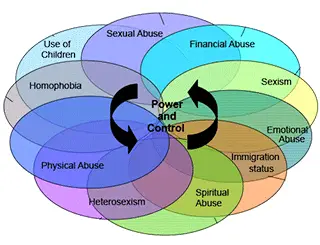- Send Us Inquiry info@autismworld.org.uk
- Emergency Help: +44 7938 641964
Domestic Abuse Awareness
At Autism World CIC, we deliver women-only advice and support, training, income-generating programmes, and networking opportunities.
We collaborate with individuals, organizations, and multi-agencies to raise awareness and provide coordinated services.
Our unique business model supports women in three key areas:
- Social Support: Offering guidance, casework support, outreach advice, and signposting services.
- Skills Development: Providing one-to-one coaching, group workshops, and training sessions.
- Economic Stability: Facilitating income generation projects, business support, and access to technology for a broader marketplace.
Understanding the challenges posed by language barriers and cultural and religious constraints, we also deliver bilingual services and workshops tailored to ethnic minority women.
12 Myths and Misconceptions About Domestic Abuse
1. Domestic abuse only involves physical violence:
Domestic abuse encompasses various forms, including emotional, verbal, psychological, financial, and sexual abuse.
2. If children are not physically harmed, they are not being abused:
Children who witness domestic abuse can experience significant emotional and psychological trauma, even if they are not physically harmed.
3. Domestic abuse only affects women:
While women are often the primary victims, men can also experience domestic abuse. It can affect individuals of any age, race, gender, or sexual orientation.
4. Domestic abuse is a private matter and should be kept within the family:
Domestic abuse is a criminal act and a violation of human rights. It is crucial to seek help and support, addressing the needs of both the victim and the perpetrator.
5. Victims of domestic abuse can easily leave the relationship:
Survivors often face significant barriers, such as fear for their safety, financial dependence, and emotional attachment to the abuser.
6. Domestic abuse only happens to people who are poor or uneducated:
Domestic abuse can affect anyone, regardless of their socioeconomic status, education level, or professional background.
7. Children are better off if their parents stay together, even if there is abuse:
Research shows that children thrive in a stable, safe, and non-violent environment.
8. Children from abusive homes will naturally become abusers themselves:
Many children from abusive backgrounds grow up to lead healthy, non-violent lives with appropriate support and intervention.
9. Alcohol and drugs cause domestic abuse:
While substance abuse may exacerbate abusive behaviors, it is not the root cause. The core issues typically involve power, control, and abusive behaviors.
10. Abusers are always visibly aggressive and violent:
Abusers can be manipulative and controlling without displaying overt aggression, making it harder for victims to recognize the abuse.
11. Children are not affected by witnessing domestic abuse:
Children who witness domestic abuse can suffer from a range of emotional, psychological, and behavioral issues.
12. Children are too young to remember or be impacted by domestic abuse:
Even very young children and, in some cases, fetuses can be affected by exposure to violence or conflict in their homes.

